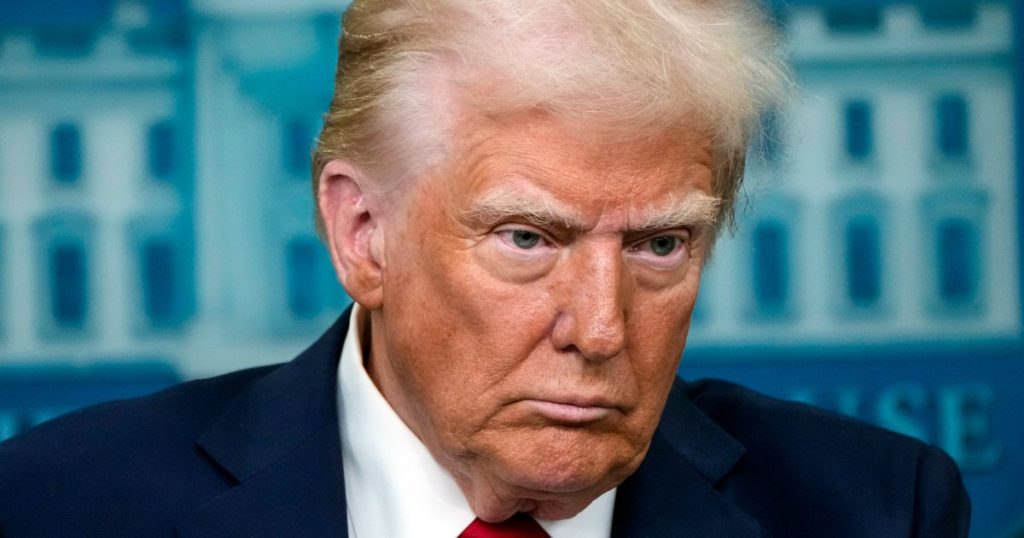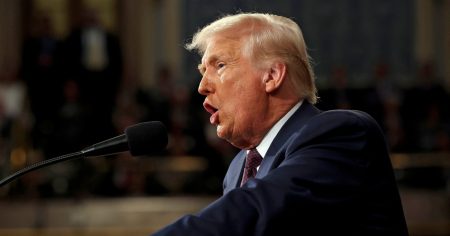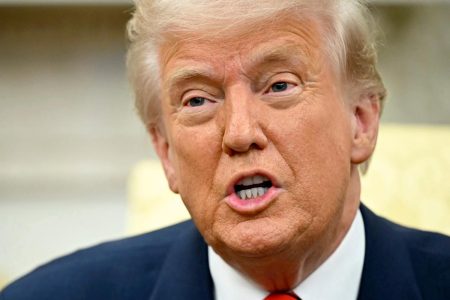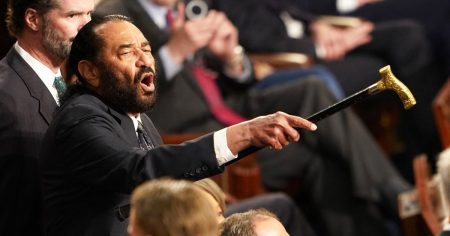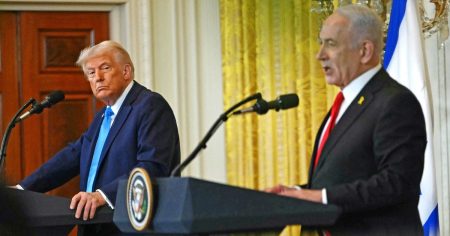Samantha Power, the former administrator of the U.S. Agency for International Development (USAID), has sounded the alarm about the potential consequences of the Trump administration’s decision to dismantle the agency. USAID, which plays a critical role in providing international humanitarian aid, has been a cornerstone of U.S. foreign policy and global influence for decades. Power warns that the Trump administration’s actions could inadvertently bolster China’s growing influence on the world stage, as Beijing seeks to expand its reach through initiatives like the Belt and Road program. In an interview with MSNBC’s Andrea Mitchell, Power emphasized that the U.S. is currently in a period of intense strategic competition with China, and the dismantling of USAID could create a power vacuum that China is well-positioned to fill. She highlighted that China has been observing the effectiveness of USAID’s work and has been mimicking some of its strategies to gain political capital and win hearts and minds in countries around the world.
The Trump administration’s approach to foreign aid has been marked by significant disruption. In recent months, Trump issued an executive order halting all foreign aid distribution, which has thrown USAID into chaos. As a result, thousands of USAID employees and contractors have been fired or furloughed, leaving the agency in a state of uncertainty. This week, USAID announced that nearly all of its global hires would be placed on administrative leave, further exacerbating the crisis. The impact of these actions is already being felt on the ground, with critical humanitarian efforts grinding to a halt. NBC has reported that shipping containers filled with aid supplies have been left untouched at ports around the world, and clinical drug trials for infectious diseases have been suspended. Power described the situation as “devastating for American interests” and damaging to the U.S. reputation as a reliable partner on the global stage.
Power, who recently penned an op-ed in The New York Times, argued that the dismantling of USAID would be a victory for global autocrats and a significant blow to U.S. leadership. She pointed out that the agency’s work is not just about providing aid but also about upholding democratic values and promoting stability in fragile regions. With USAID’s operations stalled, China is already moving to fill the gap. Power noted that Beijing has launched a $4 million global mine-clearing program, targeting areas where USAID’s absence has left a void. This strategic move by China is emblematic of its broader efforts to expand its influence and present itself as a responsible global power. Power warned that this is not an isolated incident but part of a larger trend, with China poised to exploit the vacuum left by USAID’s decline in regions around the world.
One of the most concerning aspects of the current situation, according to Power, is the spread of misinformation about USAID’s work. She criticized Republicans who have promoted false theories about how the agency spends its congressionally appropriated budget. These falsehoods, which have gained traction in a short amount of time, have damaged USAID’s reputation, even among its traditional Republican supporters. Power emphasized that these attacks are not only inaccurate but also counterproductive, as they undermine the agency’s ability to carry out its mission. She expressed concern that this misinformation campaign could have long-term consequences, eroding bipartisan support for USAID and further weakening U.S. influence abroad.
The implications of the Trump administration’s actions extend far beyond the immediate impact on USAID’s operations. Power argued that the dismantling of the agency is part of a broader pattern of U.S. withdrawal from the global stage, which has created opportunities for China and other authoritarian powers to expand their influence. She stressed that the U.S. is at a critical juncture, where its failure to lead could have far-reaching consequences for global stability and democracy. Power called for a renewed commitment to U.S. leadership and a recognition of the critical role that agencies like USAID play in advancing American interests and values. She urged policymakers to move beyond partisan divisions and work together to address the challenges posed by China’s rising influence.
In conclusion, Samantha Power’s warnings about the dismantling of USAID highlight the profound implications of the Trump administration’s approach to foreign aid. The halting of USAID’s operations has not only stopped critical humanitarian efforts but also created a power vacuum that China is eager to fill. Power’s analysis underscores the urgent need for the U.S. to reassert its leadership on the global stage and recognize the importance of agencies like USAID in advancing American interests and promoting democratic values. As the competition with China continues to intensify, the U.S. must choose between stepping back and allowing authoritarian powers to fill the void, or stepping forward and reaffirming its commitment to global leadership. The stakes could not be higher, and the consequences of inaction could be devastating for generations to come.


